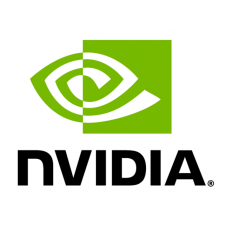Nvidia reported $7.2 billion in revenue in Q1 2023, representing a 19% increase from $6 billion the previous quarter, according to its latest financial report. However, this represents a 13% year-on-year decline from $8.3 billion in Q1 2022.
Despite these mixed results in terms of revenue, the company saw great success elsewhere. Net income stood at $2 billion for the quarter, a 44% quarter-on-quarter increase from $1.4 billion in Q4 2022 and a 26% year-on-year increase from $1.6 billion in Q1 2022.
Operating income also increased, standing at $2.1 billion in Q1 2023, a 70% increase from $1.26 billion in Q4 2022 and a 15% increase from $1.86 billion in Q1 2022. Meanwhile, operating expenses stood at $2.5 billion, a 3% quarter-on-quarter decrease from $2.57 billion and a 30% year-on-year decrease from $3.5 billion.
Game on
The company’s gaming revenue fell in line with overall revenue, standing at $2.2 billion in Q1 2023, representing a 22% increase from $1.8 billion in Q4 2022. However, there was a year-on-year decline of 38%, with gaming revenue standing at $3.6 billion in Q1 2022.
Gaming remains the company’s second most successful sector, following the data center. However, the segment’s percentage has decreased significantly, accounting for 31% of the company’s overall revenue in Q1 2023, compared to 43% in the same period last year.
“Gaming revenue was down 38% from a year ago and up 22% sequentially,” said Nvidia CFO Colette Kress. “The year-on-year decrease reflects weaker demand due to the macroeconomic slowdown and lower shipments to normalize channel inventory levels. The sequential increase was driven by the ramp of our new GeForce RTX 40 Series GPUs for desktops and laptops based on the Ada Lovelace architecture.”
Looking forward, the company is forecasting record revenue of $11 billion in Q2, a total that MarketWatch reports the company didn’t surpass in a full year in its first 25 years as a publicly traded company.
In January, Nvidia voiced its opposition regarding Microsoft’s acquisition of Activision Blizzard. Since then, the company has signed a deal with Microsoft to bring the bestselling Call of Duty franchise to GeForce Now should the acquisition be completed.

